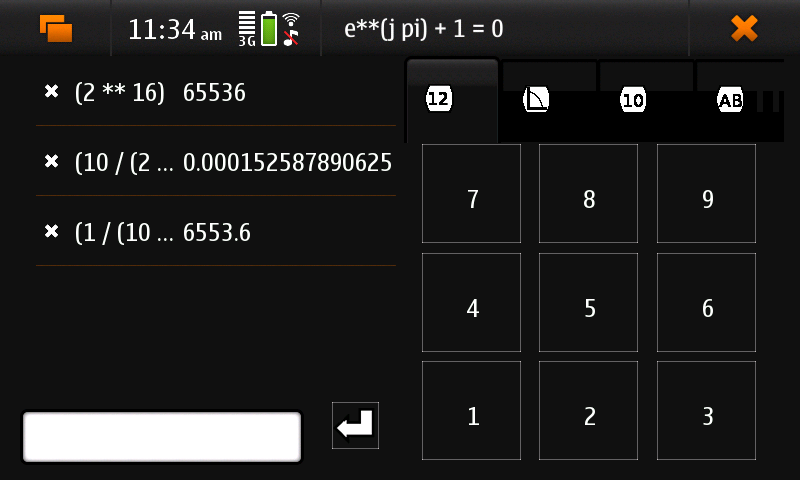Ejpi
(→Features) |
(→Contribute) |
||
| (One intermediate revision not shown) | |||
| Line 51: | Line 51: | ||
* [https://bugs.maemo.org/buglist.cgi?query_format=specific&order=relevance+desc&bug_status=__open__&product=ejpi&content= View existing bug reports] | * [https://bugs.maemo.org/buglist.cgi?query_format=specific&order=relevance+desc&bug_status=__open__&product=ejpi&content= View existing bug reports] | ||
* [http://talk.maemo.org/showthread.php?p=260919 talk.maemo.org thread] | * [http://talk.maemo.org/showthread.php?p=260919 talk.maemo.org thread] | ||
| - | * [https://garage.maemo.org/projects/ejpi/ Garage Project (including code)] | + | * [https://garage.maemo.org/projects/ejpi/ Garage Project (including code)] or [https://github.com/epage/ejpi github] |
* Learn about [http://wiki.maemo.org/Extras-testing extras-testing] and checkout the [http://maemo.org/packages/view/ejpi/ Package page (including voting)] | * Learn about [http://wiki.maemo.org/Extras-testing extras-testing] and checkout the [http://maemo.org/packages/view/ejpi/ Package page (including voting)] | ||
ejpi is available under the [http://www.gnu.org/licenses/lgpl-2.1.html LGPL v2.1 license] | ejpi is available under the [http://www.gnu.org/licenses/lgpl-2.1.html LGPL v2.1 license] | ||
| - | + | == Troubleshooting and Reporting of Bugs == | |
A very beneficial log can be found at "<code>~/.ejpi/ejpi.log</code>" | A very beneficial log can be found at "<code>~/.ejpi/ejpi.log</code>" | ||
Latest revision as of 00:36, 15 February 2011
e**(j pi) + 1 = 0
The interface focuses on history manipulation and quick access to functionality through something like pie menus. It takes advantage of pythons type system under the hood for support of integer, float, and complex operations. For integers it tracks the base used and tries to persist that through the operations.
The name (e^(j pi) + 1 = 0, or shortened ejpi) is Euler's Identity. If you do not understand the beauty of it, I recommend reading the article. Why "j"? I come from an engineering background. Yeah, it put a smile on my face when I learned Python and found out it used "j".
RPN? I've just always been a fan of its simplicity to understand, simplicity to code, uniformity in action, less mental tracking, etc. Yes, I own several HP calculators.
Contents |
[edit] Screenshots
[edit] Features
Basic features:
- Pie Menu like system for buttons: Quick access to functionality without cluttering the display
- History manipulation: Just drag the items around, click on the "x" to delete individual items, click on the entered equation or the result to copy it, etc
- Persistent history
- Plugin system: Add all the constants or custom equations you want
- Tracks numbers as integers (with base), floating point numbers, and complex numbers
- Comes by default with some basic operations, logic operations, and trig
Keyboard Shortcuts
- Ctrl+Enter - toggle between fullscreen
- Ctrl+w, Ctrl+q - quit
- Ctrl+l - Copy the debug log contents
- Ctrl+c Copy
- Ctrl+v Paste
Quirks
- "j" is used as the imaginary number
- All math is done in floating point, so for example e^(j pi) + 1 != 0
[edit] Getting ejpi
Getting ejpi
- Maemo 4.1: Available in extras through the Application Manager.
- Maemo 5 or available in extras through the Application Manager.
- Ubuntu
ejpi has been tested on:
- Ubuntu 10.04
- Maemo 4.1
- Maemo 5
[edit] Contribute
- File a bug
- View existing bug reports
- talk.maemo.org thread
- Garage Project (including code) or github
- Learn about extras-testing and checkout the Package page (including voting)
ejpi is available under the LGPL v2.1 license
[edit] Troubleshooting and Reporting of Bugs
A very beneficial log can be found at "~/.ejpi/ejpi.log"
- This page was last modified on 15 February 2011, at 00:36.
- This page has been accessed 24,690 times.


